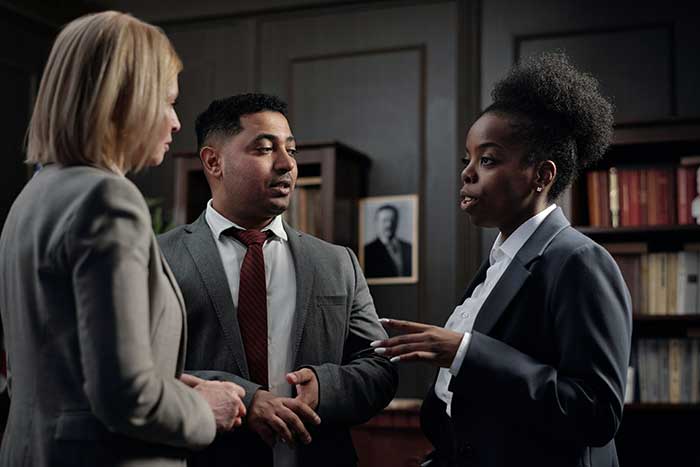Understanding when you need to hire a lawyer and what kind of lawyer you need can be confusing. Matthew Cambó is talented lawyer who has worked across a wide variety of legal disciplines throughout his career and now specializes in family law. In this article, Cambó explains the different types of lawyers and offers insight into some of the questions you should ask a lawyer before hiring them.
#1. General Practice Lawyer
For a one-stop shop, visit a general practice lawyer. They have experience helping their clients with a wide variety of issues and can refer you to a specialist if needed.
#2. Family Lawyer
Family lawyers are critical for helping you through changes in your life regarding your loved ones. They can help with paternity and custody agreements, prenuptial agreements, divorce proceedings, and a variety of other familial matters.
#3. Personal Injury Lawyer
Suppose you have sustained an injury in a car accident, in your workplace, or through a potential product liability. In that case, a personal injury lawyer can help you understand your rights, your potential entitlement to relief, and your legal options.
#4. Probate and Estate Planning Lawyer
Estate planning lawyers provide both advice and assistance when it comes to wills, trusts, property rights, and probate. They will help you and your family plan for the future or address financial issues after the loss of a loved one while ensuring that tax and legal issues are handled correctly.
#5. Intellectual Property Lawyer
One for the entrepreneurs and artists: an intellectual property lawyer will help you protect your ideas, innovations, and creations. They can help with copywriting, patenting, trademarking, protecting trade secrets, and—if it comes to it—enforcing intellectual property rights against infringement.
#6. Criminal Defense Lawyer
Guilty or innocent, a criminal defense lawyer will advocate for the accused to ensure a fair trial and to ensure the government does not infringe on your constitutional rights. You can hire a private lawyer or contact a public defender’s office if you cannot afford a private attorney.
#7. Medical Malpractice Lawyer
If you believe your doctor or medical professional materially harmed you during any treatment or provided you with treatment that is contrary to the consensus of the medical community, you should speak to a medical malpractice lawyer.
#8. Tax Lawyer
Do you need to send out an SOS over the IRS? A tax lawyer can help you navigate your options regarding audits and other situations concerning federal, state, and local tax laws.
Before You Meet with a Lawyer
Come prepared for your meeting. Bring an organized folder containing all the supporting materials to help your lawyer best evaluate your case. In addition, write down an organized list of the essential questions to ask your lawyer specific to your case. It might be helpful to enquire about what the legal process will entail. Also, the amount of time and money your case will require and what you can do to keep the costs down. What is the likelihood of a successful outcome for your case, options for settling a dispute out of court, and how often you should expect your lawyer to keep in touch with you?
When you meet a lawyer for the first time, you and the lawyer are interviewing each other, to see if you are a good fit, as you will be working closely together on what is likely a sensitive matter. Yes, you should consider the lawyer’s experience, the amount of time they dedicate to cases similar to yours, whether your case seems complicated or straightforward, and their demonstrated knowledge of the law. However, you also want to take note of their personality and how it meshes with yours, as well as the litigation style you desire and envision. Good lawyers are balanced and know when to be though and unflinching and when to be conciliatory and amicable.
About Matthew Cambó
Matthew Cambó is an associate attorney with Leinoff & Lemos, P.A. He has been recognized by Best Lawyers in America 2022 due to his exceptional focus on serving clients in family law matters. Mr. Cambó has a degree in Political Science and a J.D. from the University of Miami School of Law. He is licensed to practice in Florida and is a member of the Family Law and Young Lawyers sections of the Florida Bar.


